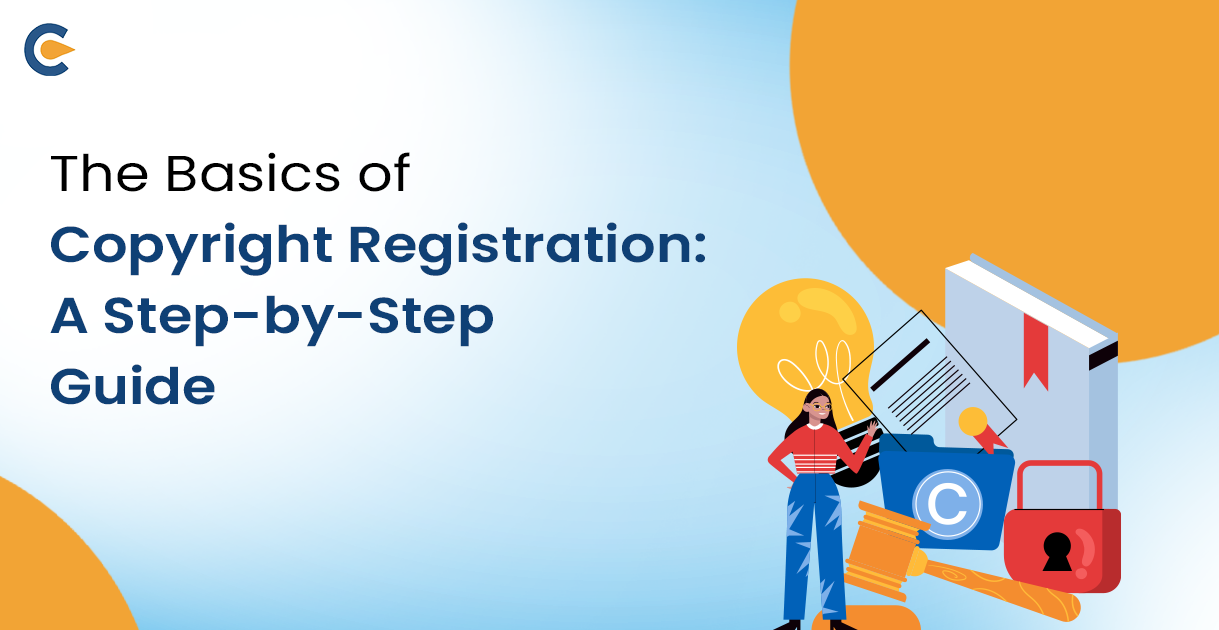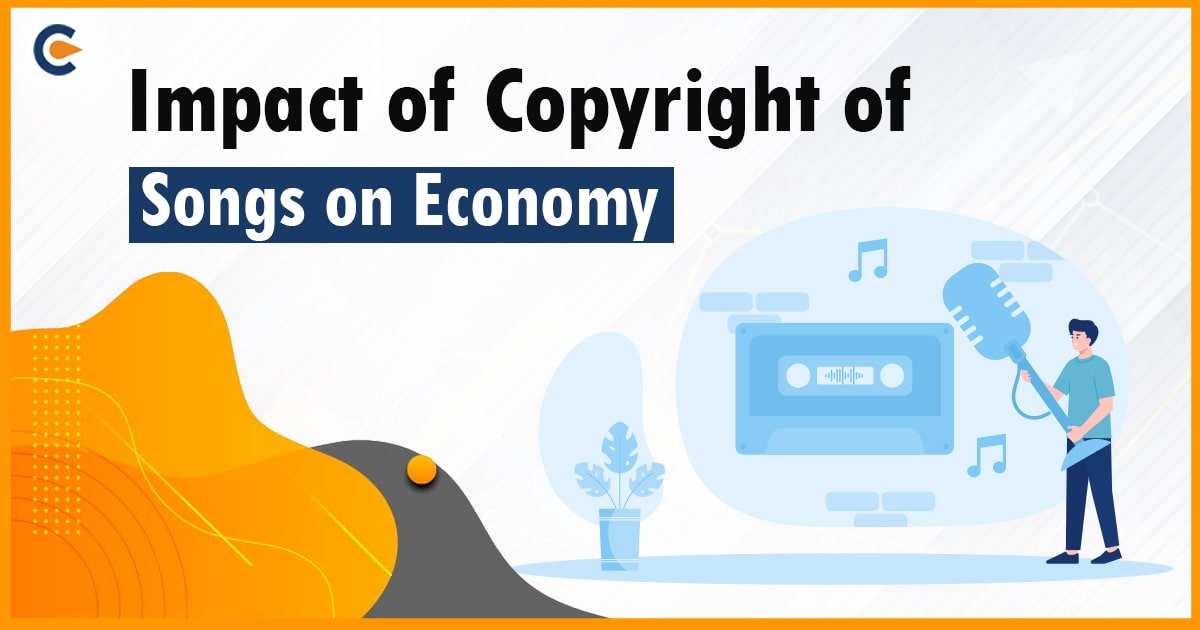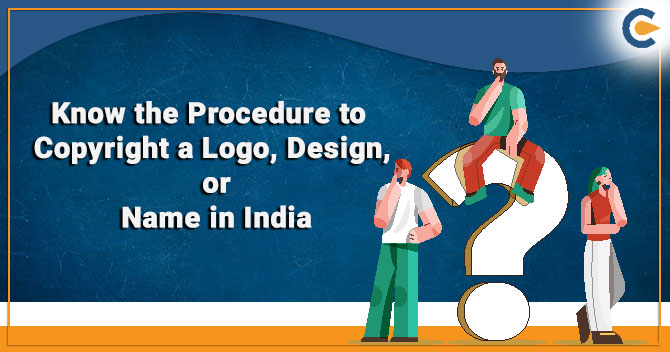Copyright is a legal privilege given to the owner of intellectual property. It relates to the right to copy or reproduce a creative work, as the title suggests. In essence, copyright indicates that an individual has ownership rights upon producing a work of intellectual property. This indicates that the only people who may copy or use that work are the creator and those they have given permission. For a limited time, copyright law grants the original creators of a work the only authority to use it or produce copies of it. The copyrighted work may gradually become public domain over time.
The Copyrights Act, 1957 regulates and governs these the basics of copyright registration, intellectual properties and literary works. The owner or creator of the work or IP has the sole authority over his creation due to the protection given by the copyright. A work that is copyright-protected cannot be copied, duplicated, imitated, or reproduced for profitable purposes in any other way. In India, a copyright is valid for 60 years. Some examples of Copyrights are music, books, software and technology, paintings and literary works, films and performances, manuscripts, etc.
What is Copyright Registration?
The objective owner of the subject has the sole authority over his creation thanks to a copyright. A work that is copyright-protected cannot be copied, imitated, or reproduced in any other way. In India, a copyright is valid for 60 years. Though obtaining a copyright registration is not required, it is usually advised since it will grant the owner some minimal rights over their creations and the assurance that no one else will be able to replicate them for a predetermined specified time. Due to this protection provided, the proprietor of the intellectual property or literary work will always be inspired to work more and produce more goods by this sense of fulfilment.
Why do you need Copyright Registration?
Copyright registration is a requisite, not only for individuals but also for companies, organizations, non-profitable organizations, and small businesses, as it helps them protect their valuable information and known identity in the market. The various benefits which the creator of an Intellectual Property or literary work can avail are –
- A public record of the copyright holder’s ownership of the property is created by the basics of copyright registration.
- Copyright Registration empowers the owner of copyright to take legal action against infringers of intellectual property in a court of law if the copyright is misused or violated in any manner.
- Adequate proof in a court of law regarding the authenticity of the basics of copyright registration and the details specified in the copyright certificate may be necessary if legal action is taken before or within a specific amount of time after the publication date.
- Copyright registration is important as it encourages innovators to research and develop new products. If the basics of copyright registration and protection are not there, the original work of the creator can be misused without paying any royalties or fees.
- Copyright registration ensures that the creators or authors are consequently rewarded for their effort and originality.
- Understanding the basics of Copyright registration permits moral and integral rights to be recognized as the author or creator of specific types of content (known as the paternity right) and to object to the mutilation and distortion of such rights. Integrity rights are the rights of authors to object to adaptations of their works or to negative treatment of them.
What can be registered under copyright?
Under copyright law, a variety of types of works need to be registered. To register the copyright for every category of work, there is a procedure you have to follow. The importance of understanding the basics of Copyright Registration is that since registration is a proactive and deliberate measure taken to safeguard the future of the work and connected aspects against potential legal challenges, it is necessary for the copyright owner. Copyright registration is made against a type of intellectual property right that protects creative works produced in a range of artistic media. Section 13 of the Copyright Act of 1957 lists these artistic and literary works that can protected with a valid copyright registration.
1. Literary Works
Literary works that are original or specially made are among the works that are shielded by copyright laws. These creative works include scripts, novels, biographies, theses, technical books, and programs, to name just a few. Regardless of the work’s overall quality, writing style, or literary merit, the copyrights to these could be asserted. The copyright of a literary work confers exclusive rights.
2. Artistic Works
The Copyright Act, 1957 protects the artistic creations of artists and creators, which include drawings, paintings, photos, structures, schematics, cartoons, models, blueprints, etchings, casts for sculptures, graphics, and drawings. These rights are created to confer exclusive rights to the creator of the work to give way copies of the work to the public, include artistic work in films and cinematography, make any changes or alternations in the work to work, reproduce the original work as well as draw commercial benefit from the work by allowing others to make use/include the work in their projects on royalty or commission basis.
3. Dramatic Works
The dramatic enactment, play, or screenplay of a particular event, story, script, or plot is referred to as a dramatic work. They could include a play, recitation, acting from a book, coordinated gestures, etc. This category of art does not contain cinematographic films of any kind. These rights allow the creator of these dramatic works to duplicate, reproduce, monetize, or make their original works publicly available to any other person or entity.
4. Sound Works
A sound recording is any recording of a sound or audio, no matter where it is kept. Sound recordings include podcasts as well as songs with or without vocalists’ accompaniment. If the sound recording includes music, the composer’s consent is required in order to preserve it through the basics of Copyright registration.
5. Musical Works
Similar to sound works, a musical composition using any kind of graphic notation is referred to as a “musical work.” Nevertheless, it omits any movements or phrases that are intended to be uttered, sung, or performed in sync with the song. The “composer” is the creator of the copyright relation to “musical works.” The composer of the musical piece must provide the author permission to record sound or music.
6. Architectural or Building Works
For the sake of copyright registration, Architectural works comprise not only the plans and aesthetic elements of a structure but also the actual models used during construction. However, They don’t address the construction method, material, or technical formulation.
Common Mistakes to Avoid
Protection for a Copyright or Intellectual work in India is automatic, which means that a work can be protected without requiring official registration. On the other hand, registration is optional and can be used as proof in court. The Copyright Act grants copyright holders a number of rights, such as the ability to publicly perform, distribute, reproduce, and exhibit their works. The Act also includes provisions for some restrictions and exceptions to copyright, such as fair use for instructional, critical, and research purposes. The important things to be kept in mind during the copyright registration process are-
Conducting a Through Copyright Search
One of the most common errors made by firms is neglecting or performing an insufficient thorough copyright search. Neglecting to recognize identical or similar existing trademarks may result in objections during the registration process, which could cause delays and extra expenses.
Identifying the Correct Category of Copyright
Copyright registration applications must state and identify the correct category of copyright to which it relates. Erroneously identifying these may lead to incomplete registration or objections. Selecting the right class or category and giving a succinct and understandable description is crucial.
Incomplete Documents
Making the mistake of submitting an application that has incorrect documents or is incomplete is a very common mistake in the basics of copyright registration process, which may lead to the cancellation of the copyright application. Companies should make sure that all required fields are correctly completed and that, in accordance with the rules, any supporting documentation is attached.
Step-by-Step Guide to Copyright Registration
The basics of Copyright Registration Process and a step-by-step guide to copyright registration in India are as follows –
Step -1
An application in Form XIV, containing all the necessary particulars, details, disclosures and specifications of the artistic work, must be prepared and attested with supporting documents to be filed on the Copyright Indi Website.
Step -2
On the copyright website, the applicant must select and click the “Online Copyright Registration” link. The online “Copyright Registration Process further involves the following steps –
- Fill up application form XIV with therelevant details and Save the said application form.
- After filling out the “Statement of Particulars,” click “SAVE” to save the information you entered.
- Fill out the “Statement of Further Particulars. This form applies to “LITERARY/DRAMATIC, MUSICAL, ARTISTIC, AND SOFTWARE” works. Click “SAVE” to store your entered details and proceed.
- This application and the requisite fees outlined in Schedule II of the Copyright Act are then forwarded to the copyright registrar. Use the Internet Payment Gateway to make the required payment of application fees for the Copyright registration and application.
Step -3
After the application is submitted, the copyright scrutiny process will begin when the registrar receives the application and issues a Dairy Number. After that, there is a required 30-day waiting period, during which time any possible objections must be filed.
Step -4
If there are no objections received within 30 days, the copyright application will be scrutinized for any inconsistencies. The registration will move forward, and an extract will be given to the registrar for inclusion in the Register of Copyright if no discrepancies are discovered.
Step -5
If all conditions are satisfied, the certificate of copyright registration will be issued by the Copyright Authority upon approval of the application. The full process usually takes two to three months to finish in a typical scenario.
Conclusion
Copyright registration is an essential aspect of intellectual property protection in India. Copyright Law is a legal provision that recognizes the exclusive rights of intellectual property owners and artists over their literary or artistic work. The Basics of copyright registration revolve around the right to replicate or reproduce a piece of creative content. As a result of the basics of copyright registration, no one else may duplicate or use that content other than the original creator or those to whom they have given permission. Creators are granted the exclusive right to use or reproduce their work for a predetermined amount of time, thanks to copyright laws. The copyrighted material may enter the public domain after this time has passed. Though Copyright registration is not a necessary requirement, it goes a long way in protecting the rights of the creator with respect to the enforcement of their legal right and protection from the law in the event of any dispute with any other entity.
Coprbiz and its specialized Intellectual property Enforcement and licensing team is a one-stop shop for all your needs relating to the basics of copyright registration application, registration, objection, and representation before the authorities. With Corpbiz, you can be sure of protecting your intellectual property rights with our comprehensive copyright registration services.
Frequently Asked Questions (FAQs)
What is a Copyright, and what is the importance of Copyright Registration?
Original literary, dramatic, musical, and artistic works, as well as cinematographic films and sound recordings, are given protectionfrom unlawful use through registration under the Copyright Act, 1957. In contrast to patents, copyright safeguards utterances rather than concepts. Concepts related to mathematics, techniques, operating procedures, and ideas are not protected by copyright.
Is Copyright Registration Necessary?
Under copyright law, a variety of types of works need to be compulsorily registered. However, in the event of a disagreement over copyright ownership, the copyright registration certificate and the entries within are considered prima facie evidence in a court of law as the basics of copyright registration.
What works are covered under a copyright registration?
Copyright Registration Covers Works Such as literary, dramatic, artistic, musical, sound, architectural works etc., that represent the original creation or composition of the creator.
What are Copyright Societies?
A copyright society is defined as a registered collective management society under section 33 of the Copyright Act. Authors and other owners form such societies. Any work for which it has been given permission by the creators or owners may be licensed by a copyright society.
What is Copyright Infringement?
When a registered work is copied, distributed, performed, publicly displayed, or transformed into a derivative work without the owner's consent, it is referred to as copyright infringement. Only registered copyrighted works may be the subject of a copyright infringement claim.
What are the basics of Copyright Registration?
The basics of copyright registration include the documents required for registering the copyright, the process and understanding the legalities of registering a copyright.
Why is it important to understand the basics of copyright registration?
In India, copyright registration is not absolutely required since it is viewed as merely documenting a fact of a right. The registration is not a requirement to file a lawsuit for infringement, nor does it grant any new rights. The Indian courts have supported the viewpoint in a slew of rulings. Even though the Copyright Act, 1957 provides protection against infringement and does not require copyright registration in India.
Do I mandatorily have to register my work under copyright?
Though Copyright registration is not a necessary requirement, it goes a long way in protecting the rights of the creator with respect to the enforcement of their legal right and protection from the law in the event of any dispute with any other entity.
Who is the owner of the copyright?
As per the Copyright Act, the author of an original work is the first owner of a Copyright. The Copyright Act extends certain rights and liberties to enjoy and exploit such exclusive rights against the world in general. The owner of the copyright has the such exclusive personal rights for a period of 60 years.
Read Our Article: Copyright Registration In India











